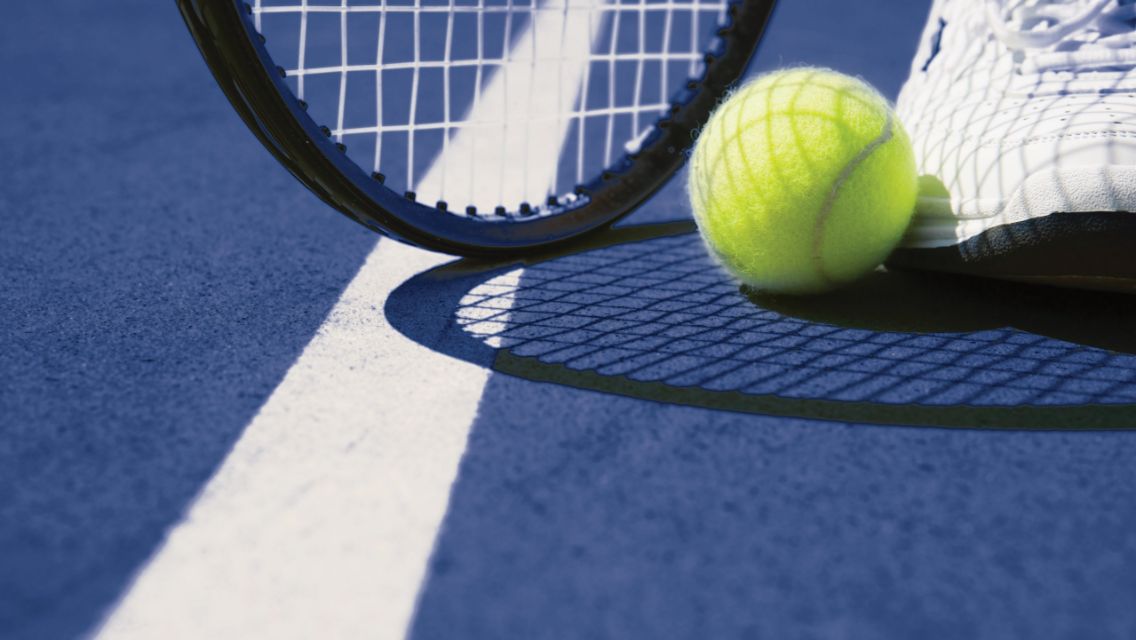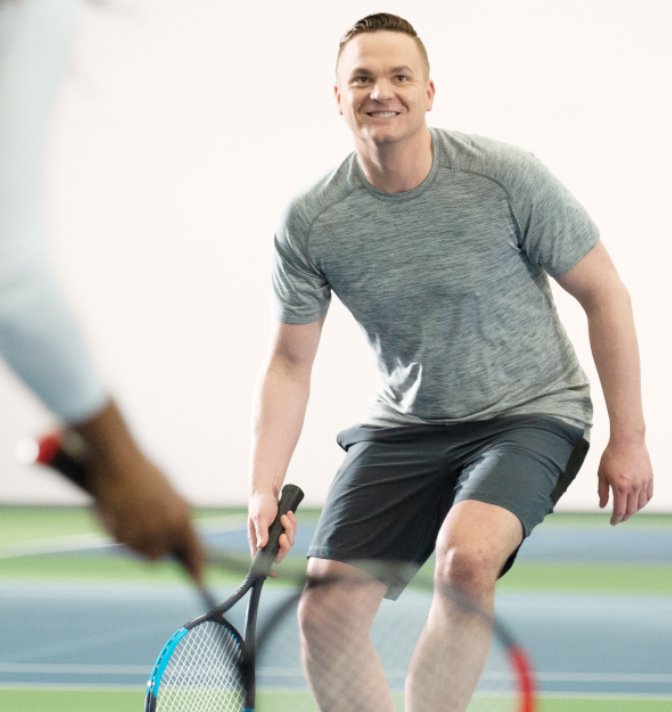Tennis is a game that is meant to be played. That may seem obvious, but too often, many of us focus on repeating the drills learned during practice or think increasing the number of lessons we take is the key to professional-level abilities. Really, the secret to improving is getting out on the court for a match.
“The irony is, there are so many folks who have become world-class lesson takers, but they can’t actually play the game,” says Ajay Pant, senior director of racquet sports at Life Time and one of 14 master tennis professionals around the globe.
We spoke with Pant to learn more about why choosing play over practice at times is so integral to your improvement as a tennis player.
You learn to expect the unexpected.
“Tennis is a game of quick, high-pressure decisions that must be made in a matter of seconds — you can’t coach that,” says Pant. “Unless you’re regularly playing, as coaches we have no way of teaching you how to make those choices at those speeds.”
Pant continues: “You could take lessons all you want, but you might never see an opponent who hits the ball with a weird sidespin, lobs every single ball, or behaves in an unsportsmanlike manner. Unless you play, you won’t be exposed to those scenarios. But those are the kinds of things you have to experience to learn how to react to and improve as a player.”
You gain open skills in addition to closed skills.
Tennis is an open-skill game, but when you’re taking lessons, that’s a closed-skill environment.
During lessons, the environment is very controlled: Every move and drill is planned. For example, a player may work directly with their coach on repetitive drills — first practicing how to hit a backhand, then how to hit a forehand — with their coach feeding them the ball throughout. They’re undergoing a stable and predictable regimen.
“Players need to learn these tactics and techniques in this way, so this form of closed-skill practice will do some good. But if the player takes those skills into a real game and applies, then the coach will really be thrilled even if the player loses,” says Pant. “That’s when improvement happens — when you take what you’ve learned in practice and apply it to an open environment of play.”
You stand to reap health benefits.
Whether you’re practicing or playing, tennis offers health and fitness benefits — though games are more spontaneous with bursts of activity, unexpected shots to return, and long plays.
Regular participants can enjoy improved cardiovascular, bone, and metabolic health, as well as see improvements in their stress and anxiety levels. “If nothing else, tennis can help make you healthy and happy,” says Pant. (Read more: “Hit the Court: 9 Health Benefits of Tennis.”)
You stay social.
Tennis is a social sport, and more so if you’re getting out and playing with friends, family, or others in your community.
“People who play tennis are notoriously friendly,” says Pant. “That’s just the culture. You can go to any court anywhere around the globe and if you have a tennis racket with you, you’re sure to make friends.”
There has even been research done that shows that communal sports like tennis are associated with increased longevity.
Your speed of improvement increases.
“If you’re taking tennis lessons but you’re not playing the game, your rate of improvement is going to be incredibly slow,” says Pant. “You will get really good at taking lessons. But if you want to advance your overall game, then you have to learn in-play tactics and responses, and that can only be done by actually playing.”
For those new to the sport, Pant encourages engaging in what he calls “deliberate practice.” This type of coach-led practice is purposeful, systematic, requires focused attention, and is conducted with a specific goal of improving. This is how Life Time’s Play Learn Love ® and SMART tennis programming is designed. After a few lessons, the “deliberate practice” can then be phased out and replaced with playing more tennis games.
“Taking a few classes a week or a refresher class before every summer is a great way to stay sharp,” says Pant. “But if your goal is to improve your skills as best and as quickly as you can, I would encourage you to also play as often as you’re able, ideally twice a week.”





